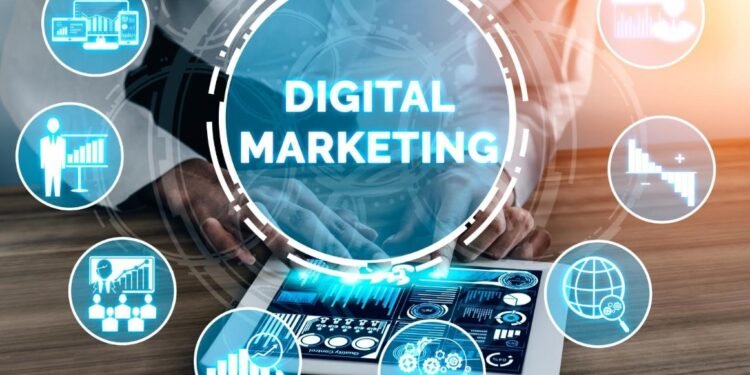As we move further into the digital age, marketing strategies continue to evolve at a rapid pace. With advancements in technology and changes in consumer behavior, businesses must stay abreast of the latest trends in digital marketing to remain competitive. This article explores some of the key trends that are shaping the future of digital marketing and how businesses can leverage these trends to their advantage.
1. Artificial Intelligence and Machine Learning
Artificial Intelligence (AI) and Machine Learning (ML) are revolutionizing digital marketing by providing businesses with more efficient and effective ways to reach their target audience. AI can analyze vast amounts of data to predict consumer behavior and personalize marketing strategies. This allows for more targeted advertising, improved customer experiences, and ultimately, higher conversion rates.
2. Voice Search Optimization
With the increasing popularity of voice-activated devices like Amazon Alexa, Google Assistant, and Apple’s Siri, voice search is becoming a significant part of digital marketing. Businesses must optimize their content for voice search by focusing on natural language and long-tail keywords. This trend requires a shift in strategy from traditional SEO to voice search optimization, ensuring that businesses remain visible to this growing segment of users.
3. Video Content Dominance
Video content continues to dominate the digital landscape, with platforms like YouTube, TikTok, and Instagram reels leading the charge. Videos are more engaging and memorable than text-based content, making them an essential component of any digital marketing strategy. Businesses should focus on creating high-quality, engaging video content that resonates with their audience to increase brand awareness and drive user engagement.
4. Augmented Reality (AR) and Virtual Reality (VR)
Augmented Reality (AR) and Virtual Reality (VR) offer immersive experiences that can transform the way consumers interact with brands. From virtual try-ons to interactive product demos, AR and VR can enhance customer experiences and make marketing more interactive and engaging. As technology becomes more accessible, we can expect to see an increase in the use of AR and VR in digital marketing campaigns.
5. Personalized Marketing
Personalization is no longer a luxury but a necessity in digital marketing. Consumers expect personalized experiences that cater to their individual preferences and needs. By leveraging data analytics and AI, businesses can create tailored marketing messages that resonate with their audience, leading to increased customer satisfaction and loyalty.
6. Social Commerce
Social media platforms are evolving into e-commerce hubs, blurring the lines between social networking and online shopping. Features like shoppable posts and in-app checkout capabilities make it easier for consumers to purchase products directly from social media. Businesses should capitalize on this trend by integrating social commerce into their digital marketing strategy to reach new customers and drive sales.
7. Sustainable and Ethical Marketing
As consumers become more environmentally conscious, sustainable and ethical marketing practices are becoming increasingly important. Businesses must demonstrate their commitment to sustainability through transparent practices and responsible marketing. By aligning with consumers’ values, brands can build trust and enhance their reputation in the marketplace.
Conclusion
The future of digital marketing is both exciting and challenging. By embracing these key trends, businesses can stay ahead of the competition and connect with their audience in more meaningful ways. Whether you are a small business owner or a Web Designers in Huntsville, understanding and implementing these trends will be crucial for success in the digital age.
Do Read: Spinning vs. Conventional Saltwater Reels: What Every Angler Should Know




